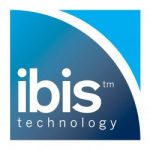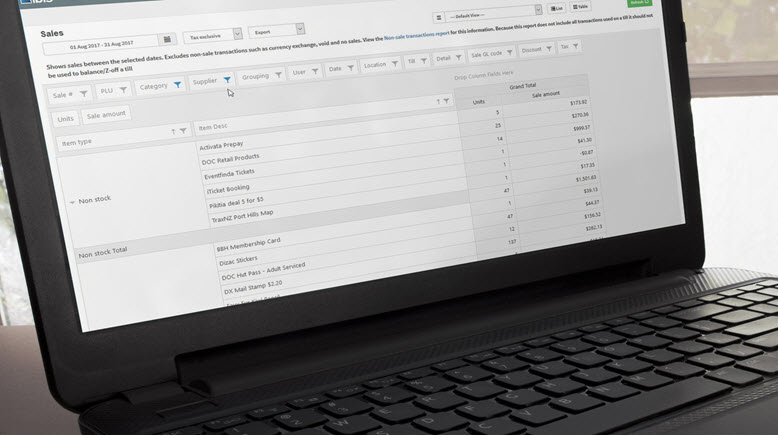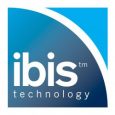Overview
We’re thrilled to introduce IBIS EOS, the latest evolution of our flagship IBIS platform. Named after the Greek goddess of dawn, IBIS EOS embraces cutting-edge technologies to prepare you for the future. Get ready for faster speeds, enhanced features, and robust security measures tailored for today’s business landscape.
The rollout of IBIS EOS will unfold over the next 12 to 18 months, and our team are looking forward to working with you to provide a seamless transition.
What can you expect from IBIS EOS?
Enhanced Server Hosting Platform
Our new server hosting platform represents a significant leap forward in reliability, scalability, and security. Built to accommodate the evolving needs of our clients, it ensures seamless operation and peace of mind.
Speed and Usability Improvements
IBIS EOS will introduce notable speed enhancements. Additionally, users can anticipate a suite of new and improved screens within the IBIS client application, enhancing usability and efficiency. While these changes may require some adjustment by your team, they promise to streamline workflows and enhance productivity.
Upgraded Online Reporting Tools
As part of the transition to IBIS EOS, we will be updating our online reporting tools to provide you with optimised functionality and insights.
Streamlined Feature Delivery
The improved structure and tools within IBIS EOS will give us the framework required to deliver new features and updates more easily to meet the evolving needs of your business.
Comprehensive Support and Training
Recognising that change can sometimes be challenging, we are committed to providing comprehensive support throughout the transition. To ensure your team are well-prepared to maximise the benefits of the new platform, we’ll offer free webinars and training resources, including videos and Knowledgebase articles. Remote training can be arranged at an additional cost if desired.
Customised Upgrade Plans
Understanding that every business is unique, we’ll provide a customised upgrade plan to ensure a seamless transition to IBIS EOS.
As we embark on this exciting journey, we are confident that IBIS EOS will elevate your experience and unlock new possibilities for your business. Stay tuned for further updates and announcements as we launch the new dawn of IBIS.
Background
IBIS is currently a Windows/Microsoft application, with server, E-Commerce and Check-in applications running in Microsoft IIS, using a Microsoft SQL server database, and a Windows forms client application. Our servers are hosted at Oxygen IT in Christchurch and Microsoft Azure (Australia).
The IBIS application was initially developed in 1998 and has undergone significant evolution since its inception. Like any software, there comes a point when it’s essential to review and redevelop the technology and environment. This process allows us to leverage new technologies, streamline the code base, and ensure the continued delivery of reliable, secure, and efficient software solutions.
With the rise of cloud computing, increased security threats, evolution in the Microsoft development stack and the development of Amazon’s Elastic Computing approach, there are considerable benefits for IBIS to change both our hosting environment and some of the technologies IBIS is based on.
Our new version, IBIS EOS, capitalizes on the advantages of Amazon Web Services (AWS) hosting. Leveraging elastic computing, enhanced firewall and intrusion detection tools, and a suite of advanced AWS services, IBIS EOS ensures improved performance and reliability. Powered by Microsoft .NET Core and an Amazon Aurora database, it efficiently delivers new functionality. By harnessing AWS benefits, we position our customers for success in the dynamic digital landscape while safeguarding against malicious activity.
Solution
The EOS project covers changes in a few different areas, including the application framework and tools, as well as our server hosting environment.
Server Hosting
EOS is hosted in AWS, an environment that has been developed for cloud computing. It offers flexibility to use the tools we need, along with an easy-to-use management environment. It is cost-effective, allowing us to keep our services affordable even for our smallest customers.
A key benefit of AWS is the ability to scale our resources up and down as demand requires. For example, during busy periods such as summer statutory holidays, IBIS will automatically scale up to provide more resources. Once the rush is over, resources will scale down again automatically. This ensures that IBIS has good response times even with heavy load.
Security is designed into the AWS framework, with many tools available to manage intrusion detection, routing and VPN connections. This will allow us to increase the level of sophistication of our management of cyber-attacks and other unwanted traffic into our server and ecommerce applications.
AWS also has sophisticated disaster recovery features that will improve our ability to minimise downtime in case of unexpected events and ensure data is preserved.
This change in hosting platform allows us to focus our effort more on the delivery of usable functionality and reduce our involvement with platform management.
Application Framework and Tools
IBIS EOS is built using Microsoft .NET Core, which offers enhanced performance and scalability over the current framework, resulting in a faster and more efficient application. This means better overall experience for our end users.
Re-platforming our code base also provides an opportunity for review and optimisation as we move towards more of a microservices approach. This will also allow us to deliver new features more efficiently and effectively, without needing to consider backwards compatibility with outdated structures.

Phased Approach and Timing
We’ll be taking a phased approach to introducing EOS to our customers over the next 12-18 months. This allows us to manage risk and introduce the new version in a controlled manner.
Target timeline: May 2024 – August 2024
Migrate customers using our upgraded E-Commerce and Check-in applications using .Net Core to the AWS hosting environment. This gives us immediate benefits in terms of managing load and undesirable traffic to the E-Commerce platform as this is where we see most of the intrusion attempts.
These two applications are smaller and less complex, so provide us with an opportunity to ensure we have the AWS environment and deployment process optimised before we move to the next step.
The E-Commerce and Check-in applications will continue to connect to the IBIS Server hosted at Oxygen It (NZ customers) or on Azure (Australian customers).
We will be starting E-Commerce and Check-in migrations towards the end of May 2024 and aim to have this largely complete within 4 weeks.
Impact on customers
This will be a straightforward change for customers, with no visible change at the user end.
Technical requirements
This step may require a change in the DNS CNAME record you currently have configured to point to the IBIS E-Commerce engine. We will advise you of this closer to the time of your migration.
Target timeline: August 2024 – August 2025
Upgrade the IBIS Server application with .NET Core and implement a rationalised database structure, still in MS SQL. This will also include removing screens using older technologies and replacing them with newer versions or retiring them as appropriate.
Customers will be migrated over a 6-12 month period, starting August 2024. This will be a progressive migration based on functionality requirements of each customer, so some customers will be able to move sooner than others.
Impact on customers
This step will have the biggest impact on frontline users as we upgrade screens in the IBIS Client application. The optimized database structure will also deliver significant performance improvements.
We’ll be working through the changes with customers, providing documentation, training videos and test systems where appropriate. Upgrades will be scheduled in advance and will require some downtime per system (approximately 30 minutes) to allow us to run migration scripts. This downtime will affect all connections from the IBIS client application, check-in and E-Commerce website. All users at a business must upgrade at the same time.
We will be in touch with a customised upgrade plan for your business.
Technical requirements
Customers that currently use direct connections to IBIS databases for data analysis tools such as Power BI will need to discuss upgrade options with us.
If your IT department manage client update versions in some way, e.g. you use IBIS in a Citrix/Terminal server environment, use Amazon workspaces, or have updates coming from a custom download path, your IT department will need to be involved in the timing of the update.
Target timeline: October 2024 – October 2025
Migrate the IBIS Server application to AWS and Aurora DB, except for the IBIS Online reporting functionality.
Impact on customers
This is a significant back-end change but will not have much impact on the way users interact with IBIS. This step will deliver further performance improvements as we make use of scalable resources in AWS.
Target timeline: June 2025 – October 2025
Upgrade IBIS Online reporting functionality to use new tools and move to AWS hosting environment.
Impact on customers
This step will involve a change in the way users experience our IBIS Online reporting functionality. We intend to carry out a full review of IBIS reports as we migrate them to ensure we are delivering data optimally. Saved reporting views may need updating, including those used for report streaming.



